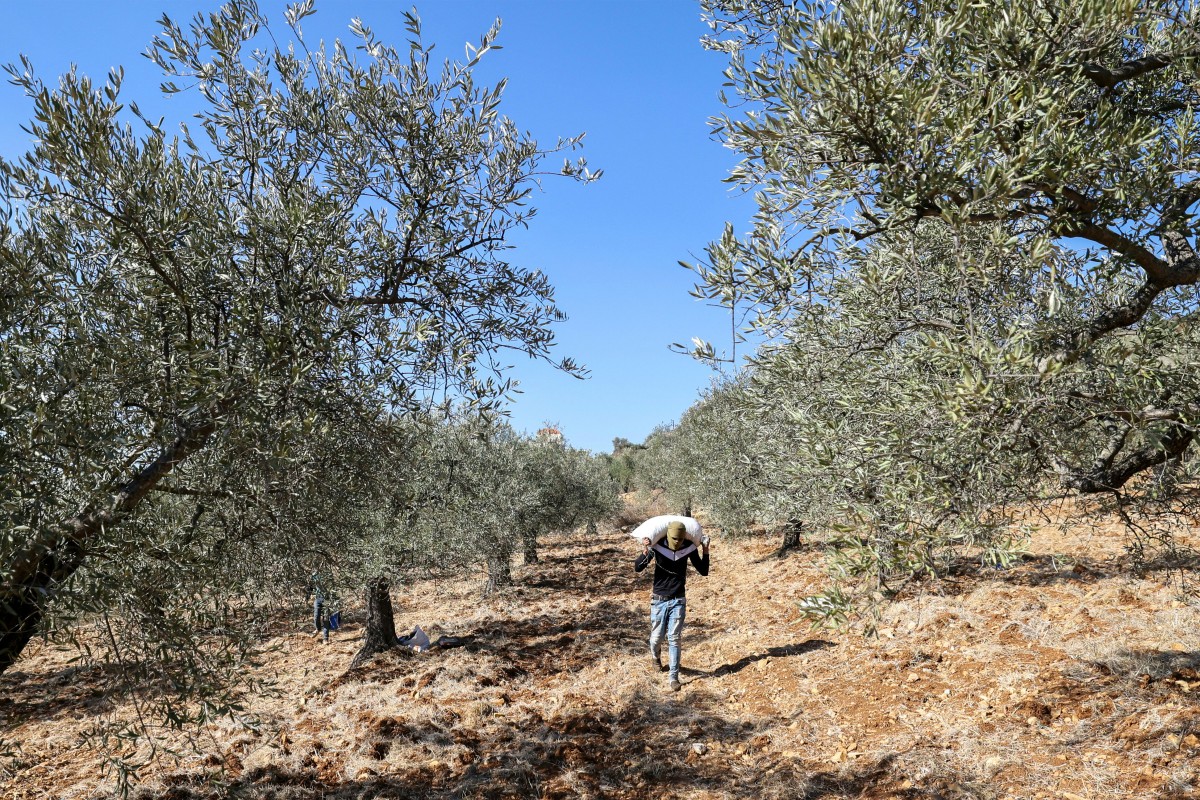Amid ongoing political and economic turmoil, Lebanon is now facing an unprecedented water and agricultural crisis in 2025, one that poses a serious threat to the country’s food and public health security and exposes the fragility of its water infrastructure. According to the Lebanese Meteorological Service, rainfall levels have dropped by 50% compared to the annual average, leading to a significant decline in both groundwater and surface water levels. The result: a perfect storm for a national emergency affecting every home and every table.
From Climate Crisis to Existential Threat
This drastic drop in precipitation has been accompanied by record-high spring and early summer temperatures, which have accelerated the evaporation of available water resources and severely reduced the land’s ability to retain moisture. Data from the Lebanese Agricultural Research Institute shows that irrigation water availability has declined by over 60% this season compared to the average over the past five years.
In key agricultural regions such as the Bekaa Valley, Akkar, and the South, drought is no longer a looming threat—it is a lived reality. Green fields are on the verge of turning barren, and recent aerial images reveal a troubling decline in cultivated land compared to last year. Water levels in agricultural ponds and wells have dropped dramatically.
Lebanon’s Agricultural Sector in Collapse
Agriculture, which accounts for around 5% of Lebanon’s GDP and employs nearly 15% of the country’s workforce, is grappling with a compounded crisis. In addition to severe water shortages, the sector is burdened by:
- A 300% surge in the cost of agricultural supplies over the past two years.
- A more than 500% increase in the price of fuel used to operate irrigation pumps.
- The near-total absence of government funding or effective agricultural programs.
In the Bekaa region, farmers are now speaking of a "real battle for survival." As one farmer put it:
“We’re not just fighting for our crops—we’re fighting to stay on our land and keep living off it. If we don’t get urgent support, we’ll lose the entire season.”
Desperate and Dangerous Measures: Crops Irrigated with Contaminated Water
In a desperate bid to salvage what they can, some farmers have resorted to using unsafe water sources, including untreated wastewater and polluted streams. A recent report by the Food and Agriculture Organization (FAO) notes that the use of untreated water for irrigation has risen by 25% in some Bekaa villages over recent months.
This alarming practice threatens to spread dangerous pathogens such as Salmonella and E. coli, while increasing heavy metal concentrations in both soil and crops. The consequences are dire—not just for public health, but also for Lebanon’s agricultural exports, which have become an increasingly vital source of income amid the ongoing currency crisis.
Limited Government Response, Postponed Reforms
Lebanon’s Ministry of Agriculture has launched an emergency plan that includes:
- Promoting drip irrigation systems that reduce water loss by 40–50%.
- Awareness campaigns on water conservation and the reuse of greywater.
- Encouraging farmers to shift toward drought-resistant crops such as olives, thyme, and cactus.
While these initiatives are important, they fall short of addressing the existential scale of the crisis. The lack of a national water infrastructure, such as rainwater harvesting systems or strategic reservoirs, leaves Lebanon dangerously exposed to future climate shocks.
A World Bank report highlights that Lebanon’s agricultural sector consumes around 70% of the country’s water resources, with little to no regulation. Alarmingly, more than 35% of water is lost each year due to leakage and inefficient irrigation practices.
Crossed deadlines?
Lebanon now faces a critical choice:
- Either adopt a comprehensive national plan for managing its water and agricultural resources—one that includes climate-smart farming, investment in rainwater harvesting, and strict legislation for water governance—
- Or continue down the path of piecemeal, short-term fixes that will ultimately lead to the gradual collapse of agriculture, an up to 80% surge in the cost of essential food items, a rise in rural unemployment, and worsening waves of internal displacement.
Agriculture is a Matter of National Survival
Lebanon’s water crisis is not merely an agricultural issue. It is a national emergency that concerns every citizen. Water, food, and public health are inextricably linked, and failure to confront this crisis will come at a heavy economic and social price.
The clock hasn’t stopped ticking—but the window for action is closing fast. Either Lebanon takes bold, structural steps today, or tomorrow it will find itself unable to feed its people or water its land.
Agriculture is not a luxury. It is a strategic, social, and economic lifeline. Every investment in it is an investment in Lebanon’s survival.
Please post your comments on:
[email protected]
 Politics
Politics













